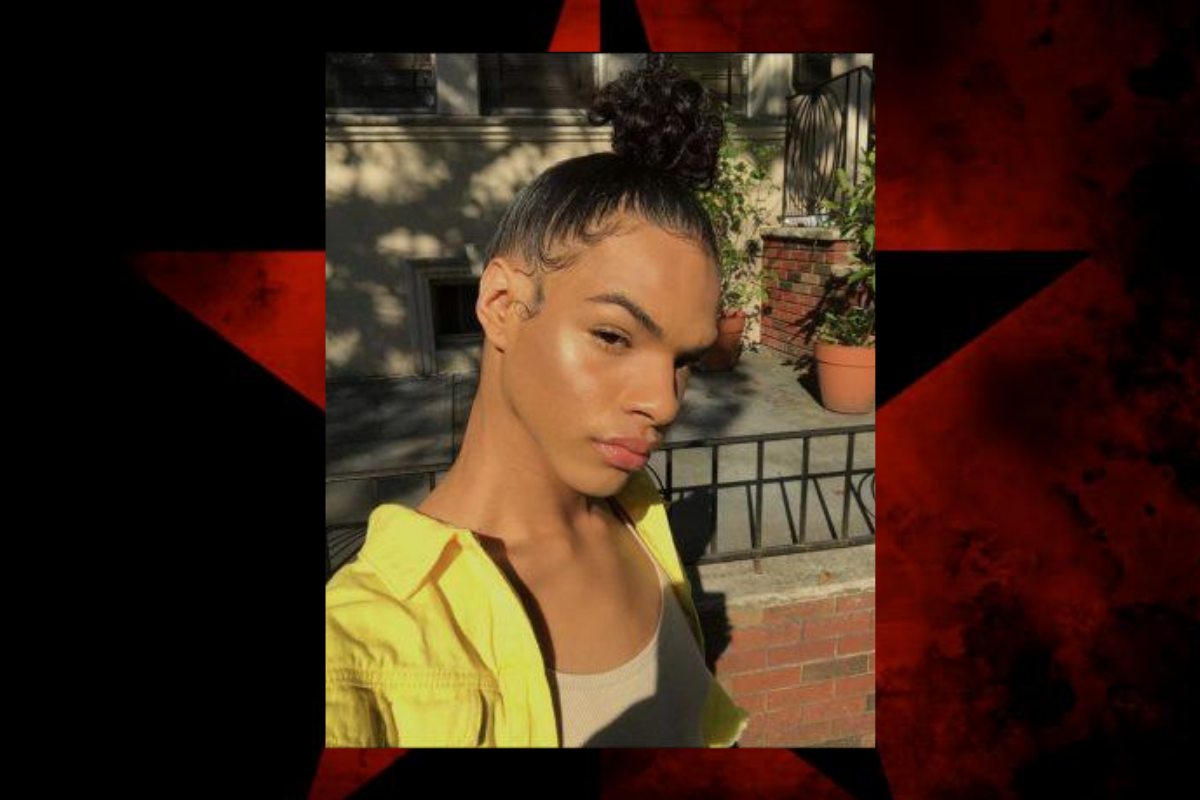

Photo credit: Selyna Brillare / @trapselyna
NEWARK — At the age of 14, Selyna Brillare went viral for the first time. Brillare doesn’t remember what the video was about, but she knew from that moment that she wanted to become an entertainer. Now, at the age of 19, the Queens native ranks up thousands of views in popular social media platforms such as TikTok, Instagram, and YouTube.
Since March, Brillare has gained more than six hundred thousand followers and has created and published more than one thousand short one-minute videos—mixing comedy sketches that showcase her Dominican heritage and social commentary on her experience as an out Afro-Latina trans woman.
Latino Rebels talked to Selyna Brillare to know more about what it takes to become an influencer, the role her identity plays in her content, and some of her future goals.
Diego Jesús Bartesaghi Mena: How did your social media presence start?
Selyna Brillare: During the quarantine, I had nothing to do. I had a lot of free time. So, my friend told me to create a TikTok account. Since it was becoming popular I said ‘why not?’ I started in March doing comedy sketches, and it blew up from there. I was getting a lot of views, a lot of likes, followers, and I continued making videos. But, I was making videos on Instagram since I was 14. I went viral then, but my account got hacked and I stopped.
DJBM: Is there a constant pressure to always become viral? To remain relevant in this industry?
SB: Absolutely. It is a blessing and a curse. It is not like a regular career that you start at the bottom, and work your way up. Eventually, you blow up. When you become viral, you start at the top and there is pressure to continue creating product that will keep you on the top. People are always looking at what you are going to do next. You need to constantly create something. On a day where I need to post, I record about 20 to 30 videos, but not all those videos get posted. I have to do all the editing, the background music, the idea of the videos. I am in charge of planning the video. It can get really hard.
@selyna.brillare
DJBM: How would you describe the content you create?
SB: I like comedy, doing sketches. Most of my content is comedy, but I also talk about trans issues. I do a balance. If I am funny, I try to keep it interesting, not the same routine. I do comedy, but incorporate trans issues and [my experience] being Afro-Latina. I incorporate Spanish as well, and anecdotes that Afro-Latinas go through at home. But I also have some videos where I talked about the issues of being trans, going through transition, taking hormones. So, I like to keep it balanced.
DJBM: Do you think it’s more difficult for a transgender influencer to break through and become viral than a cisgender influencer?
SB: Yes! As a transgender influencer, you have to prove you are more than just a ‘trans person.’ It feels that my humanity is invalidated by just the fact of being trans. [You] always have to prove yourself. It is not always the main topic on my comedies. It’s like you have to tell people that I am a comedian —an entertainer— that happens to be transgender. It is hard for some people to see me past my gender identity.
If you are a creator, you need to have thick skin. Personally, I read the comments, all of the comments, the good and the bad. I don’t care if they talk about me. I have a thick skin; I can take it. The community is cut-throat with this whole cancel culture. Some of my videos and opinions are taken out of context. Some comments are transphobic, comments like ‘you are a man.’ Whereas a cisgender influencer does not have the same approach. It’s easier for them because they don’t have to prove themselves.
@selyna.brillare What Beauty ?❤️ @jorubby6 #afrolatina #nyc #fyp #themistas #dominican #costarican #cuban
DJBM: What is your personal goal? Where do you see yourself in five years?
SB: Five years from now, I won’t be the same person. But I want to continue working on my comedy. I want to do TV shows, movies. At the moment, I am working on a makeup brand. I am also working on myself, documenting my transition on my YouTube channel. And my personal goal is to blow the lid for other trans women, and trans women of color in media. Right now, you see more trans women in the media, but not enough. I want to burst into it. We need to normalize trans woman in the media. We need to take space and being seen because without representation, people won’t know the experience of being transgender. I want to inspire other trans women.
***
Diego Jesús Bartesaghi Mena is a 2020 Latino Rebels summer correspondent. A recent graduate of Columbia Journalism School, he is based in Newark, NJ and tweets from @bartesaghi_mena.


